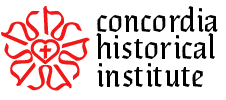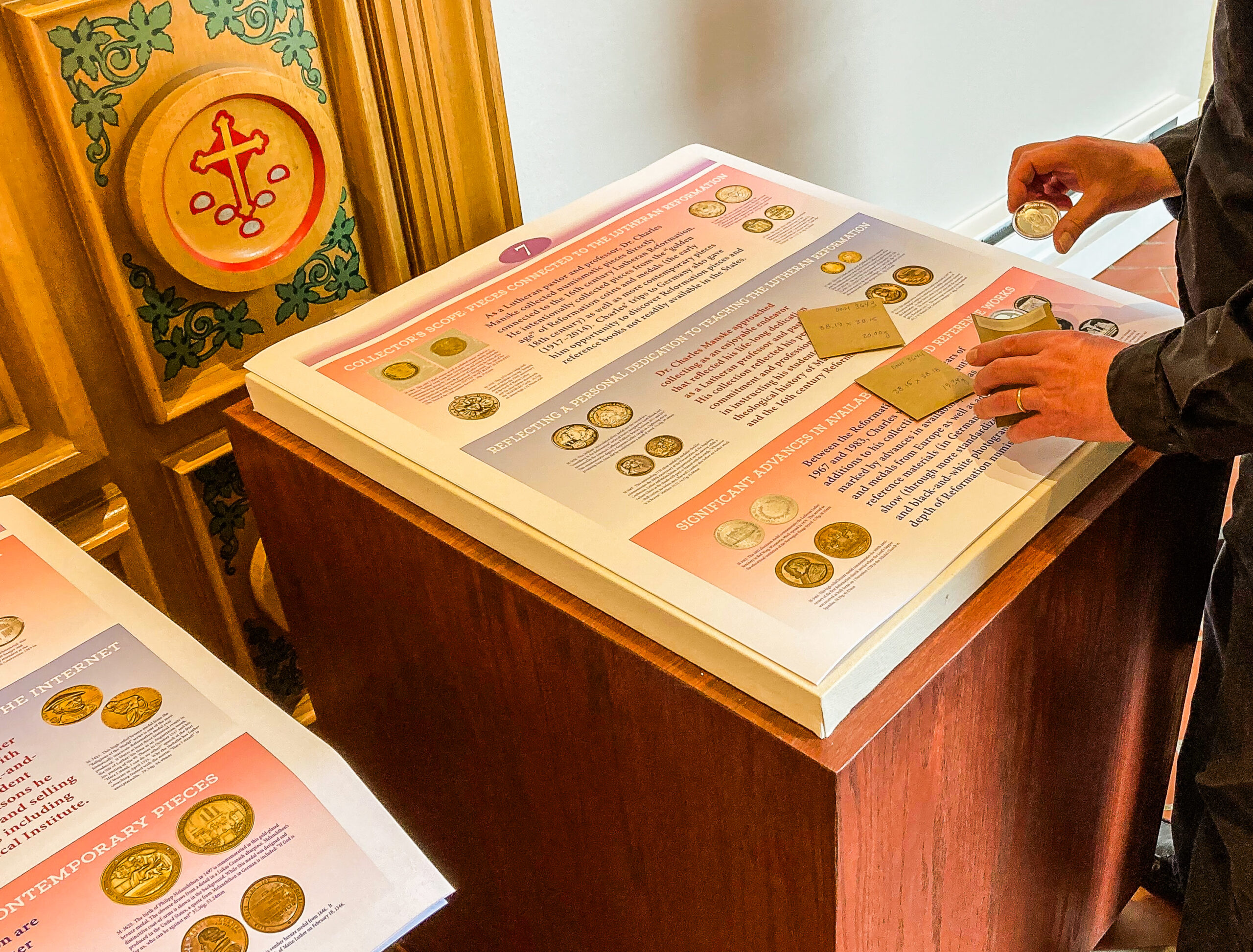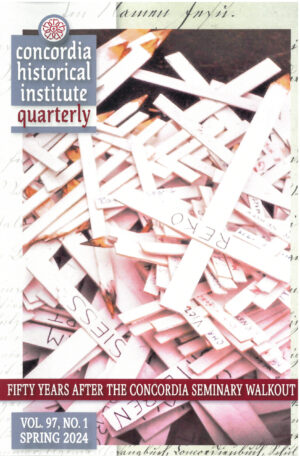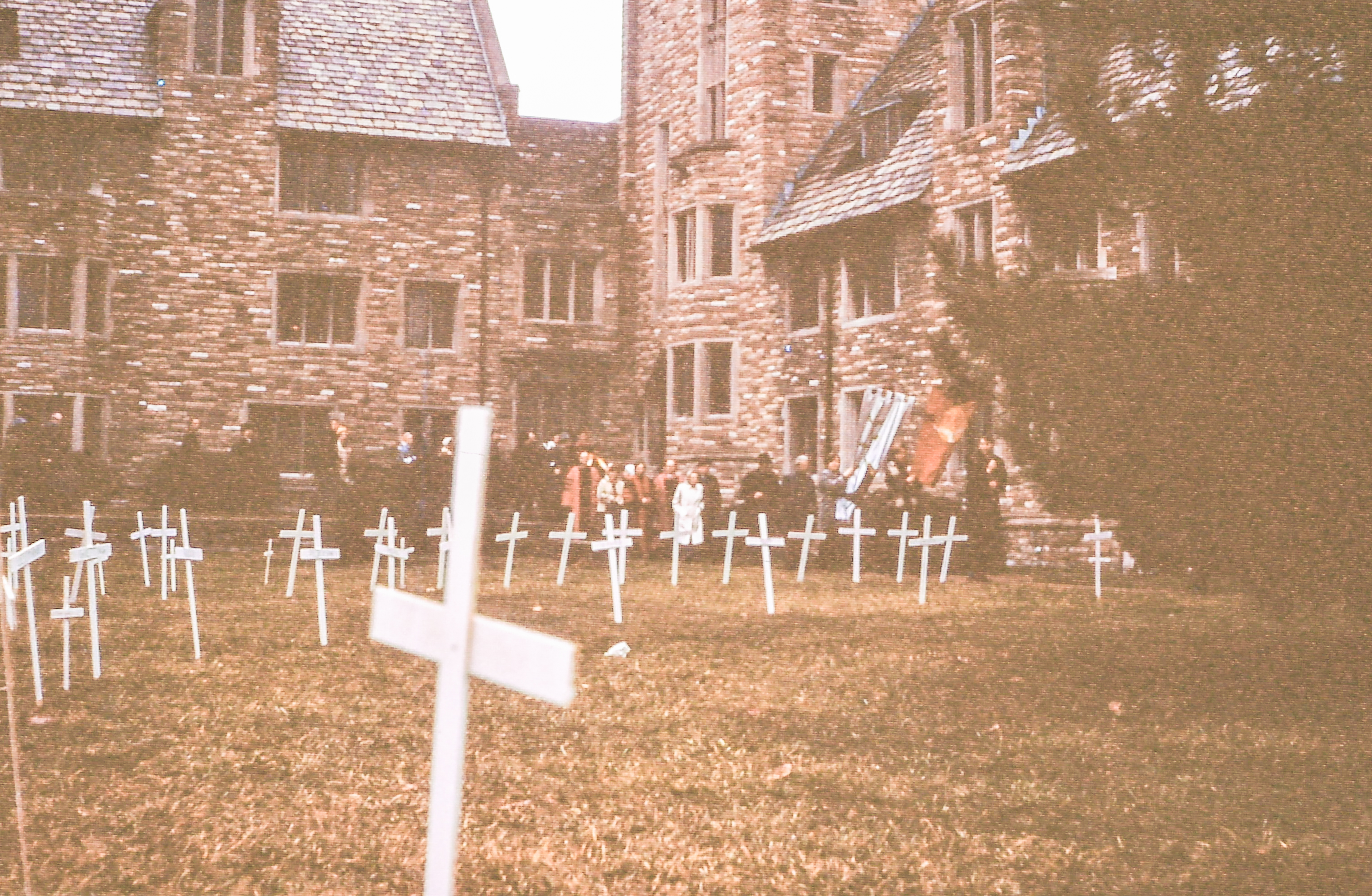Service Bulletin #3b
Rationale
Autobiography serves church history by producing historical records. We are not suggesting prideful patting oneself on the back, however, but that in godly humility you write an account of your life and work, telling the good and the bad, the high points and low points, the successes and failures. These are all part of the story of God’s continuing grace in and through the church.
Personal insights into the past, an evaluation of personal experiences in the service of the church, comments on major events and many related subjects can often be better understood through autobiographical accounts, reminiscences and diary entries. Without the accounts of the services rendered and reactions to episodes and incidents in the church, much human interest data can easily be lost.
Technical Notes
When considering the preparation and production of an autobiographical record, you may wish to keep the following outline in mind. The production need not be a masterpiece of literary form. The chief interest centers on the rich experiences in the service of God and men that the individual has had.
The length of the sketch this will very greatly with individuals. We encourage you to tell your story in your own style. If you have photographs of yourself, your family and institutions you have served, you may wish to include them, as they will enhance the record tremendously.
Sketches are best typed or produced on a word processor and printed on 8.5-by-11 paper.
A Suggested Outline
- Ancestry: Include the details of parents, references to grandparents, earlier generations, and ethnic background that may be known. Episodes from home life, customs and practices with references to marriages, baptisms, confirmations, funerals and worship life, etc., are often useful.
- Early Youth and Primary Education: Include references to the geographical location and places of residence of the family; pastime and recreational activities; school teachers; courses of study; techniques used in the classroom; languages employed; family responsibilities; books and literature; transportation modes; friends; pastors’ and teachers’ influences. Also recount how you came to decide to serve the Lord as a full-time church worker.
- The Young Adult Emerges: Reference to preparatory, college and seminary training would be useful here. A description of the colleges attended, instructors, courses taken, the physical aspects of the schools, recreational activities, characterizations of instructors and classmates, impressions, reminiscences and incidents that impressed you. Travel engaged in during this time, influential literature, etc., may be helpful.
- Professional Life: Installation, commissioning and ordination events; practices of calls; congregational life; concerns of the people served; customs and practices prevailing in the various parishes; pastoral conferences; circuit meetings; subjects discussed; baptismal, communion and other ecclesiastical customs and practices, particularly contrasted to childhood; salaries, cost of living; festivals and anniversaries observed, especially mission festivals, Christmas, Easter, confirmation and Thanksgiving services, etc.; descriptions of physical settings in which you worked; continuing education.
- Secular and Ecclesiastical Offices: References may here be made to the services rendered on committees and boards, both secular and religious; length of time served; objectives and purposes of such boards and committees; reminiscences of district and synodical conventions; administrative practices; books, pamphlets, tracts and periodical articles you may have produced; evaluations of people in leadership positions; relationships with other clergy, teachers and local contacts with the community, theological aspects, etc.
- In Retrospect: Anecdotal glimpses into past decades, highlighting and pinpointing certain experiences; comments on the contemporary situation; words of wisdom for posterity, especially analyses of major current events and movements within the church in the community; comments on language transitions, racial matters, the advances of technology, war and peace, etc.
- Family: Marriage to whom, how you met, courtship; your children, their schooling and their careers; comments on family life and related matters, especially with respect to family worship; the goals of the children for the future; the life and career of your spouse; housing arrangements, etc.
A Concluding Word
You may want to add to the above suggestions, or perhaps even include less material. We hope the former, because our aim is to help you create as complete as possible a personal recollection of your life and service in the Church. If you have questions, please write to us. Thank you.
Copyright © 1998 Concordia Historical Institute, 801 DeMun Ave., St. Louis, Missouri, 63105
These bulletins may be freely reproduced & distributed, as long as the copyright, name, and address of the Institute are properly displayed.





